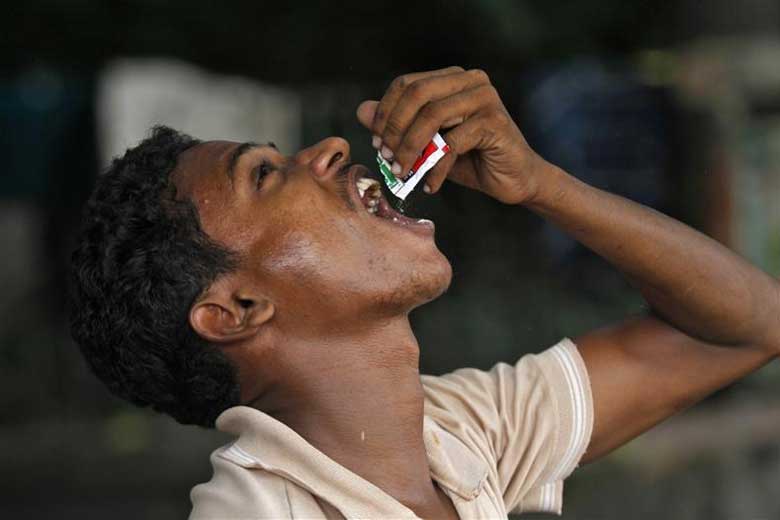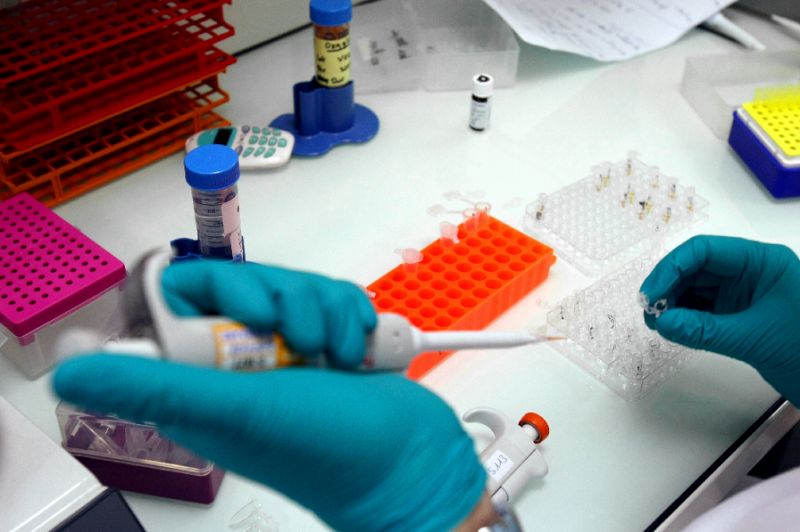New Delhi|HL
Almost a third of Indians (57% of all men and 11% of all women) consume some form of tobacco (smoky and smokeless tobacco) and many use more than one type of tobacco product. About 34% Indian population consume tobacco products.
The global tobacco epidemic kills nearly six million people each year, of which more than 600,000 are non-smokers dying from breathing second-hand smoke. Unless we act, the epidemic will kill more than eight million people every year by 2030. Tobacco use is the single most preventable cause of death globally and is currently responsible for 10% of adult deaths worldwide. Smokeless tobacco is an important etiological factor in cancers of the mouth, lip, tongue and pharynx. Smoking tobacco is responsible for a substantial majority of lung cancer and chronic obstructive pulmonary diseases, and most smokers die either from these respiratory diseases or from ischemic heart disease. Smoking also causes cancer of upper respiratory and gastrointestinal tracts, pancreas, urinary bladder and kidney, and increases risk of peripheral vascular disease, stroke and peptic ulceration
Consumption of tobacco is the most common cause of preventable death. Globally, a large number of people die because of tobacco use. The World Health Organization (WHO) estimates that each year tobacco causes about 6 million deaths with 600,000 of these occurring in non smokers due to second hand smoke.
Cigarette Smoking and tobacco use are major causes for heart attacks, strokes, chronic obstructive pulmonary disease and cancer. Cigarettes generate more than 7,000 chemicals and many of these chemicals are harmful. Once these chemicals enter our body, they affect a number of vital organs of central nervous, respiratory and cardiovascular system. Let us see how different organ systems are affected by tobacco.
Central Nervous System
Nicotine, one of the ingredients in tobacco, is a mood-altering drug. After consumption of tobacco, it reaches brain in a few seconds. It stimulates central nervous system and makes you feel more energized. As that effect subsides, you feel tired and crave more. Thus, Nicotine is habit-forming. Smoking affects eyes and increases risk of macular degeneration, cataracts, and poor eyesight. It can also weaken your sense of taste and sense of smell, so food may become less enjoyable. Physical withdrawal from smoking can impair cognitive functioning and make a person feel anxious, irritated, and depressed. Withdrawal can also cause headaches and sleep problems.
Respiratory System
Smoking can damage lungs. Regular smoking over a period of time makes lungs lose their ability to filter harmful chemicals. Coughing cannot clear out the toxins sufficiently, so these toxins get trapped in the lungs. Smokers have a higher risk of respiratory infections, colds, and flu. Besides repeated infections, smokers are at increased risk of developing chronic obstructive pulmonary disease. Long-term smokers are also at an increased risk of lung cancer.
Cardiovascular System
Smoking damages the entire cardiovascular system. When nicotine hits the body, it causes blood vessels to tighten, which restricts the flow of blood (peripheral artery disease). Smoking lowers good cholesterol levels and raises blood pressure, which can result in stretching of the arteries and a buildup of bad cholesterol (atherosclerosis). Smoking raises the risk of formation of blood clots which increases risk of heart attacks and strokes. In the long term, smokers are at greater risk of blood cancer (leukemia).
Skin, Hair, and Nails (Integumentary System)
Some of the more obvious signs of smoking involve the skin. The substances in tobacco smoke can change the structure of skin. Smoking causes skin discoloration, wrinkles, and premature ageing. Fingernails and the skin on fingers may have yellow staining from holding cigarettes.
Digestive System
Smokers are at a greater risk of developing oral problems. Tobacco use can cause gum inflammation (gingivitis) or infection (periodontitis). These problems can lead to tooth decay, tooth loss, and bad breath. Smoking also increases risk of cancer in mouth, throat, larynx, and esophagus. Smokers experience higher incidene of kidney cancer and pancreatic cancer. Even cigar smokers, who do not inhale, are at an increased risk of mouth cancer.
Sexuality and Reproductive System
Restricted blood flow can affect a man’s ability to get an erection. Both men and women who smoke may have difficulty achieving orgasm and are at a higher risk of infertility. Smokers experience more complications with pregnancy, including miscarriage, problems with the placenta, and premature delivery.










